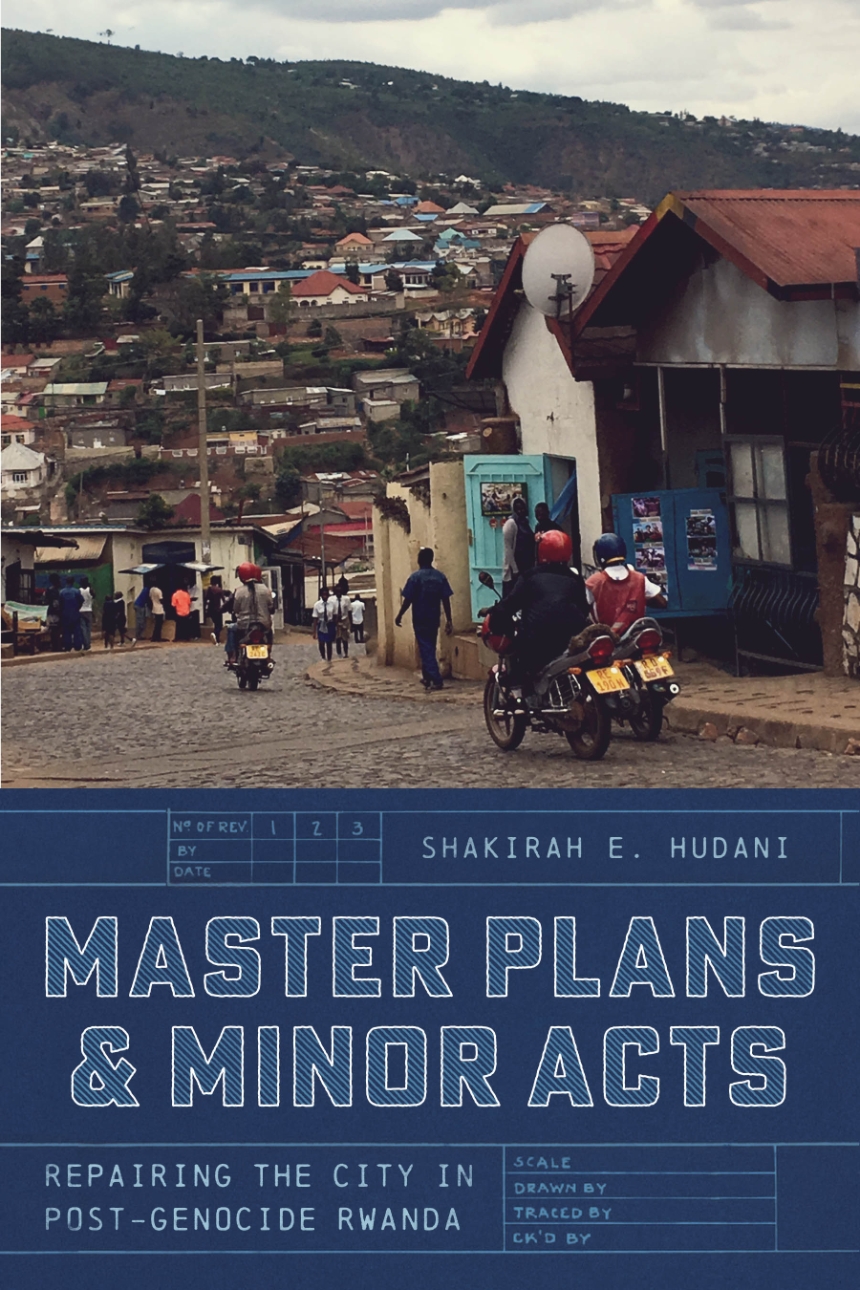Master Plans and Minor Acts
Repairing the City in Post-Genocide Rwanda
9780226832722
9780226832739
9780226832746
Master Plans and Minor Acts
Repairing the City in Post-Genocide Rwanda
An examination of planning, place, and the politics of repair in post-genocide Rwanda.
Master Plans and Minor Acts examines a “material politics of repair” in post-genocide Rwanda, where in a country saturated with deep historical memory, spatial master planning aims to drastically redesign urban spaces. How is the post-conflict city reconstituted through the work of such planning, and with what effects for material repair and social conciliation?
Through extended ethnographic and qualitative research in Rwanda in the decades after the genocide of 1994, this book questions how repair after conflict is realized amidst large-scale urban transformation. Bridging African studies, urban studies, and human geography in its scope, this work ties Rwanda’s transformation to contexts of urban change in other post-conflict spaces, bringing to the fore critical questions about the ethics of planning in such complex geographies.
Master Plans and Minor Acts examines a “material politics of repair” in post-genocide Rwanda, where in a country saturated with deep historical memory, spatial master planning aims to drastically redesign urban spaces. How is the post-conflict city reconstituted through the work of such planning, and with what effects for material repair and social conciliation?
Through extended ethnographic and qualitative research in Rwanda in the decades after the genocide of 1994, this book questions how repair after conflict is realized amidst large-scale urban transformation. Bridging African studies, urban studies, and human geography in its scope, this work ties Rwanda’s transformation to contexts of urban change in other post-conflict spaces, bringing to the fore critical questions about the ethics of planning in such complex geographies.
258 pages | 15 halftones | 6 x 9 | © 2024
Anthropology: Cultural and Social Anthropology
Geography: Cultural and Historical Geography, Social and Political Geography, Urban Geography
Reviews
Table of Contents
Significant Abbreviations
Introduction
1. A Material Politics of Repair
Part 1. Master Plans
2. Repair in Old Kigali
3. The Project of Reformation
4. A Pedagogy of Wounds
Part 2. Minor Acts
5. Political Abandonment
6. Peripheral Conscription
7. Rural Imagining
Conclusion
Coda. Reckonings
Acknowledgments
Appendix
Notes
References
Index
Introduction
1. A Material Politics of Repair
Part 1. Master Plans
2. Repair in Old Kigali
3. The Project of Reformation
4. A Pedagogy of Wounds
Part 2. Minor Acts
5. Political Abandonment
6. Peripheral Conscription
7. Rural Imagining
Conclusion
Coda. Reckonings
Acknowledgments
Appendix
Notes
References
Index
